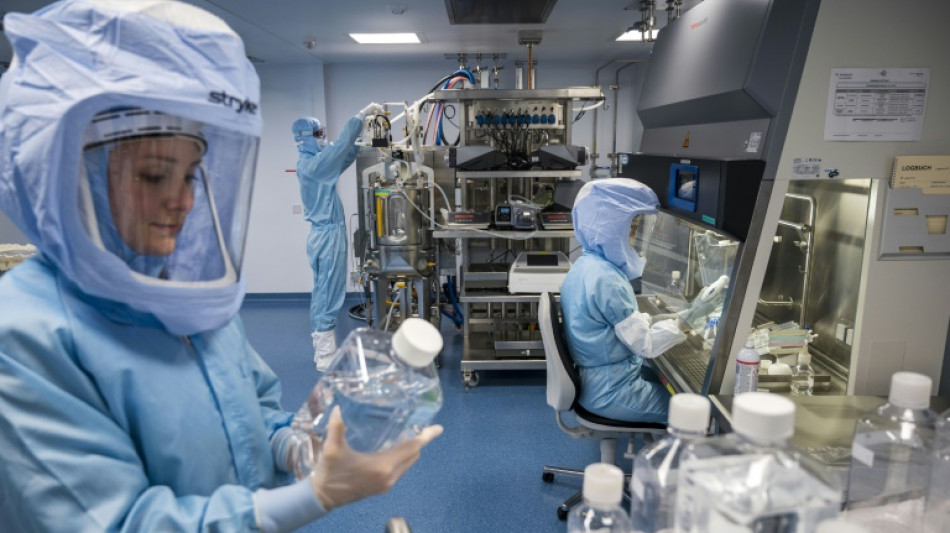
-
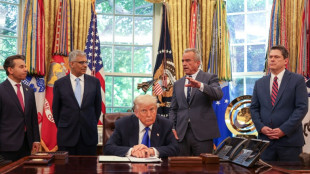 Trump orders curb on virus research he blames for Covid pandemic
Trump orders curb on virus research he blames for Covid pandemic
-
'Makes no sense': Hollywood shocked by Trump's film tariffs announcement

-
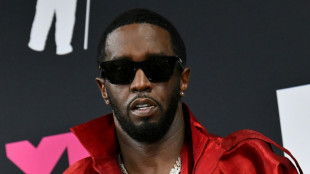 First day of jury selection wraps in Sean Combs sex crimes trial
First day of jury selection wraps in Sean Combs sex crimes trial
-
Dominican Republic reports sharp rise in Haitian migrant deportations
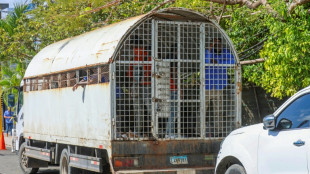
-
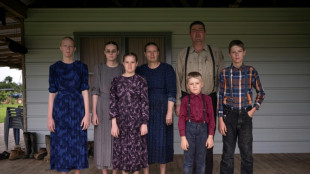 Mennonite communities raise hackles in Peruvian Amazon
Mennonite communities raise hackles in Peruvian Amazon
-
Dominican Republican reports sharp rise in Haitian migrant deportations
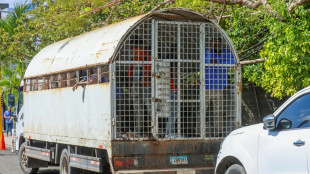
-
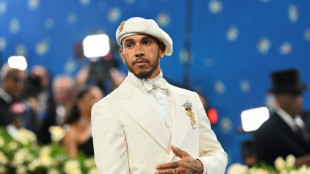 Stars shine at Met Gala, showcasing Black dandyism
Stars shine at Met Gala, showcasing Black dandyism
-
Ireland captain Doris doubtful for Lions tour due to shoulder injury

-
 Pentagon chief orders 20% cut in number of top officers
Pentagon chief orders 20% cut in number of top officers
-
'New superstar' Zhao's world title heralds Chinese snooker revolution

-
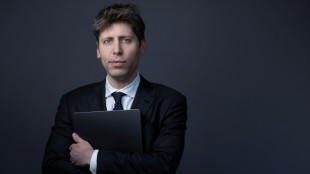 OpenAI abandons plan to become for-profit company
OpenAI abandons plan to become for-profit company
-
Ford sees $1.5 bn tariff hit this year, suspends 2025 forecast

-
 Snooker star Zhao: from ban to Chinese sporting history
Snooker star Zhao: from ban to Chinese sporting history
-
Zhao makes history as China's first World Snooker champion

-
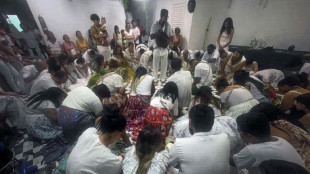 Brazilian ritual root gets second life as potential anti-depressant
Brazilian ritual root gets second life as potential anti-depressant
-
Israel says 'most' Gazans to be displaced in expanded operation
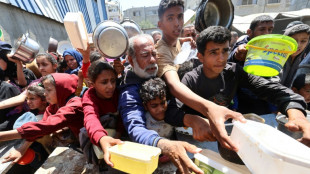
-
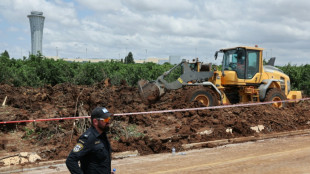 Israel strikes Yemen after Huthi attack on Ben Gurion airport
Israel strikes Yemen after Huthi attack on Ben Gurion airport
-
'It's time': Popovich passes Spurs torch to Johnson
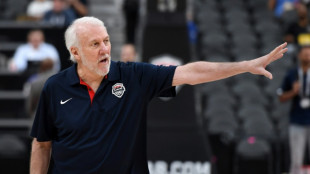
-
 Cummins heroics in vain as rain forces Hyderabad out of IPL playoff race
Cummins heroics in vain as rain forces Hyderabad out of IPL playoff race
-
Huthis say US, Israel bomb Yemen after strike on Israeli airport
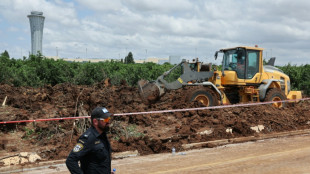
-
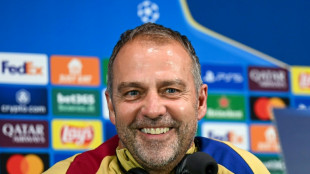 Lewandowski on bench for Barca's showdown with Inter, says coach Flick
Lewandowski on bench for Barca's showdown with Inter, says coach Flick
-
Pricing birdsong: EU mulls nature credits to help biodiversity

-
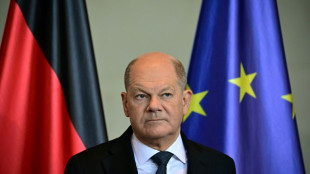 Scholz vows continued German support in last call with Zelensky
Scholz vows continued German support in last call with Zelensky
-
UK kicks off party to mark 80 years since end of WWII
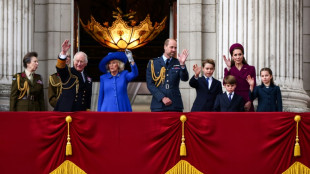
-
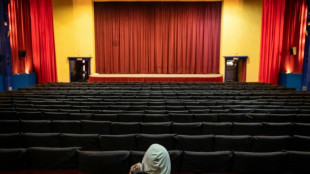 Global film industry reels from Trump tariff announcement
Global film industry reels from Trump tariff announcement
-
Cardinals assemble to elect pope and set course for church

-
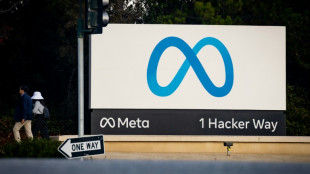 Meta content moderator cuts over 2,000 jobs in Spain: union
Meta content moderator cuts over 2,000 jobs in Spain: union
-
Pakistan conducts second missile test, India readies civil defence drills

-
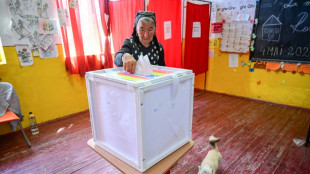 Pro-EU or pro-Trump? Romania faces decisive choice in vote
Pro-EU or pro-Trump? Romania faces decisive choice in vote
-
Nazi surrender site sets the scene for Wim Wenders short film

-
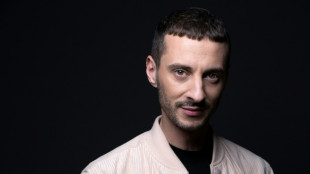 French court backs Olympics choreographer in cyberbullying case
French court backs Olympics choreographer in cyberbullying case
-
Romania run-off pits pro-Trump nationalist against centrist mayor
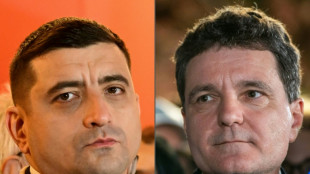
-
 South Africa's Rabada back in IPL after serving drug ban
South Africa's Rabada back in IPL after serving drug ban
-
Pride and excitement as UK crowds celebrate 80 years since WWII's end

-
 Ex-French interior minister Darmanin apologises for 2022 Champions League fiasco
Ex-French interior minister Darmanin apologises for 2022 Champions League fiasco
-
Zhao on brink of becoming China's first World Snooker champion
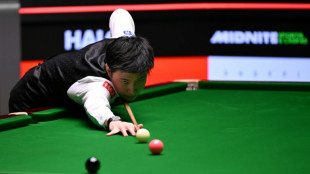
-
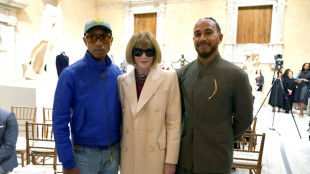 Stars come out for Met Gala, showcasing Black dandyism
Stars come out for Met Gala, showcasing Black dandyism
-
Jury selection begins in Sean 'Diddy' Combs sex crimes trial
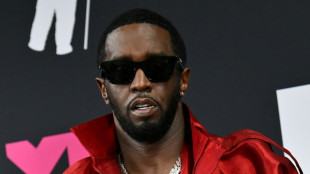
-
 Martinez rushing to be ready for Barca showdown, says Inter's Inzaghi
Martinez rushing to be ready for Barca showdown, says Inter's Inzaghi
-
Warren Buffett to remain as Berkshire Hathaway board chair
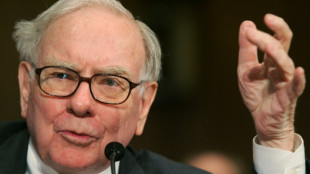
-
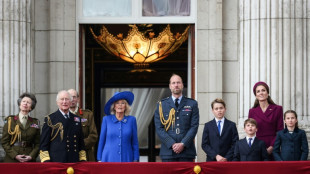 UK royals lead celebrations to mark 80 years since WWII end
UK royals lead celebrations to mark 80 years since WWII end
-
Top Spanish court drops tax complaint against ex-king Juan Carlos
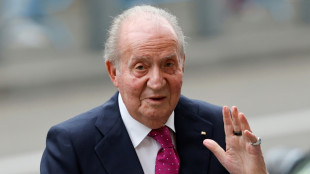
-
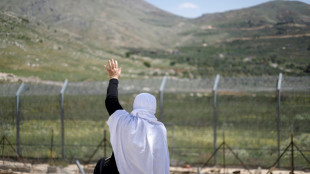 Who are the Middle East's Druze religious community?
Who are the Middle East's Druze religious community?
-
Russian reporter critical of Ukraine war escapes to France

-
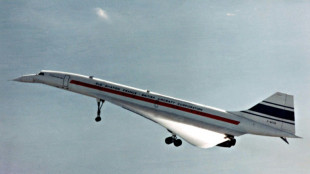 France names first Concorde jet a historical monument
France names first Concorde jet a historical monument
-
France, EU take aim at Trump's assault on science, seek to lure US researchers
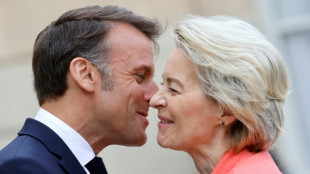
-
 Catholic Church's direction in the balance as vote conclave looms
Catholic Church's direction in the balance as vote conclave looms
-
German coalition deal signed on eve of Merz govt launch
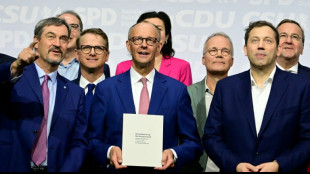
-
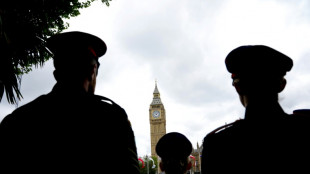 UK begins four days of events to honour last WWII veterans
UK begins four days of events to honour last WWII veterans
-
Cassocks competition: whose outfit will new pope wear?
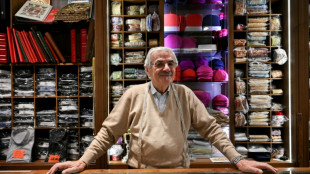

WHO pandemic agreement talks face deadline crunch
The outcome of years-long negotiations on a global agreement on tackling future pandemics remained in doubt ahead of a final deadline Friday.
Five years after Covid-19 killed millions -- and with new health threats lurking, from H5N1 bird flu to measles, mpox and Ebola -- pressure is mounting for a landmark deal on pandemic prevention, preparedness and response.
"Having a framework that brings nations together and plans for the next pandemic will save thousands if not millions of lives," insisted WHO emergencies director Michael Ryan.
But President Donald Trump's decision to withdraw the United States from the World Health Organization and his large-scale dismantling of US health institutes is a new threat to the global health risk surveillance system, experts warn.
"It's now or never," said Sueri Moon, co-director of the Global Health Centre at the Geneva Graduate Institute.
In December 2021, WHO member states resolved to seek a deal aimed at preventing and preparing for future pandemics, to avoid the mistakes made during Covid.
Major disputes have slowed negotiations, including on how to share data on dangerous pathogens, and whether the transfer of the technology and know-how to produce vaccines, tests and treatments should be mandatory or voluntary.
- 'Unpredictable' -
After 13 rounds of discussions, countries have been meeting at the WHO headquarters in Geneva for final negotiations this week, with a Friday night deadline to iron out remaining problems.
The aim is to have a text ready for final approval during the WHO's annual assembly next month.
"The member states are working very hard," WHO chief Tedros Adhanom Ghebreyesus told reporters on Thursday, adding: "I hope they will reach a deal."
Ryan added that the negotiators were "making steady progress. But there are difficult issues on the table."
The number of disputed issues have steadily shrunk in recent months, with observers saying the main sticking point now is "political will".
The outcome is "unpredictable", a diplomatic source told AFP.
"Substantial progress" has been made on the draft text, "but differences remain on some key articles", China's mission in Geneva told AFP, calling on all parties to "display mutual understanding" to secure an agreement that is "meaningful, equitable and actionable".
- 'Very important' -
A new extension of the talks until May is possible, with NGOs and experts urging countries to compromise.
"It's very important to reach this agreement, even with a sub-optimal text," said Ellen 't Hoen, director of the Medicines Law and Policy NGO.
"That is much more preferable than having to negotiate such an agreement from scratch, because that will likely only happen after the next pandemic hits, and that would be an unacceptable situation."
Among the remaining sticking points are a so-called Pathogen Access and Benefit-Sharing System (PABS) proposed in the text.
The proposal calls for participating companies to provide the WHO with "rapid access" to 20 percent of their production of pandemic-related health products, including "at least 10 percent of their real time production" in the form of donations.
Some countries, especially producer states, have meanwhile balked at what they consider high thresholds.
While the talks could in theory continue even after next month's assembly, there is widespread concern that if the process drags on, the political will to conclude a deal would dissipate.
If that happens, "it will probably be too late", Moon said.
"The wind will go out of the sails."
P.M.Smith--AMWN